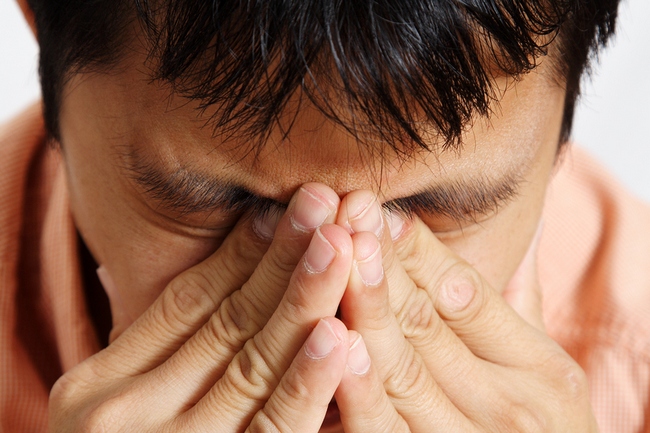- Make It Yourself Lavender Heart-Shaped Bath Bombs!
- 20 Things You Never Knew About “Down There”
- 12 Best Foods For Those Suffering From Arthritis Pain
- 12 Personal Hygiene Mistakes Almost Everyone Makes (Mom Never Told You About #4!)
- 15 Medicinal Plants And Herbs From The Cherokee People
- 12 Mind-Blowing Benefits Of Drinking Coconut Water During Pregnancy
- 12 Outstanding Winter Foods That Won’t Fatten You Up Like A Christmas Turkey
Top 6 Dangerous Headaches That Should Send You Straight To The Doctor

Photo credit: bigstock.com
Everyone gets headaches now and then. They are often caused by stress, tension, or sometimes by sinuses, and most of the time, they aren’t anything serious.
However, sometimes, they are. You should become familiar with the signs of headaches that are downright dangerous, because many of these require urgent medical attention.
1. The Worst Headache Of Your Life
Any headache that you would describe as being the “worst headache of your life” should be checked out by a doctor. These types of headaches include pain in the head and/or upper neck when lying down. If you feel stiffness in your neck, are vomiting, feel confused, or have intolerance to light, you should not ignore these symptoms. These kinds of headaches sometimes mean that you have a ruptured aneurysm in the brain or that you are having some other type of brain hemorrhage. This isn’t always the case, of course, but severe headaches, especially if they come on suddenly, should be checked out by your doctor right away.
2. Thunderclap Headaches
These kinds of headaches are severe and occur frequently. They literally develop in one minute and feel as if someone hit you upside the head with a baseball bat, or it feels like a clap of thunder inside your head. These can be caused by bleeding in the brain after a stroke, aneurysm, or a head injury. If you get more than two or three of these within one week, see your doctor as soon as possible.
3. Headaches That Get Worse When Walking
If you have a headache and decide to go to bed, and then wake up with an even worse headache; or if you wake up with a headache so severe it causes vomiting, you need to see the doctor right away. If you should have a headache that typical over-the-counter pain medications do not get rid of, and the intensity of your headache increases when you walk or exercise, this is another serious issue. These types of headaches can be a symptom of a brain tumor.
Continue to Page 2

Photo credit: bigstock.com
4. Headaches After Injuries
If you had a head injury and then have a headache later, you need to seek medical attention immediately. This type of headache might mean you have had a concussion. Even small head injuries should be checked out by the doctor as they can cause bleeding in the brain, resulting in skull pressure, which you feel as a headache.
SEE ALSO: 10 Types of Headaches and What to do About Them
5. Sudden Headaches
Most headaches come on slowly, over a period of a few hours, but headaches that come on suddenly, especially when they are accompanied by weakness in the face, arms, or legs; numbness on one side of the body; have difficulty speaking; feel a loss of balance, or if you have double vision or tunnel vision, you should go to the emergency room immediately. This can indicate a stroke or heart attack.
6. Unusual Headaches
These are hard to describe, as everyone experiences different types of headaches, but if you should get a headache that is very unlike any other headache you have ever had, you should see your doctor. Unusual headaches might include things like:
- A headache so severe you cannot perform your normal daily tasks
- Headaches that change in location, frequency, or severity
- Headaches accompanied with seizures
- Headaches that become more frequent and severe over time
- Headaches that include shortness of breath and sweating
- Headaches that include speech and vision difficulties
- Headaches that come with vomiting, nausea, and/or fever
- Headaches after lifting weights, jogging, or after sex
- Headaches that leave you with memory problems, confusion, balance problems, and/or the inability to move your arms or legs
When you think about it, it’s even strange that we have headaches at all. Since our brain has no nerves, how can it feel pain? Scientists think that it’s not so much the brain itself that feels pain, but the surrounding tissues, blood vessels, brain chemicals, and nerves in these tissues that send pain signals to the brain.
If you should experience any of these types of headaches, do not wait. See your doctor ASAP or go to the emergency room.
References:

































